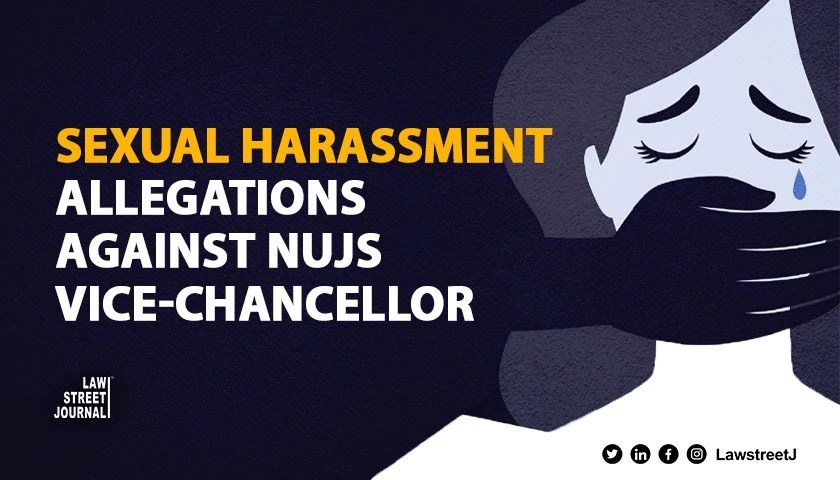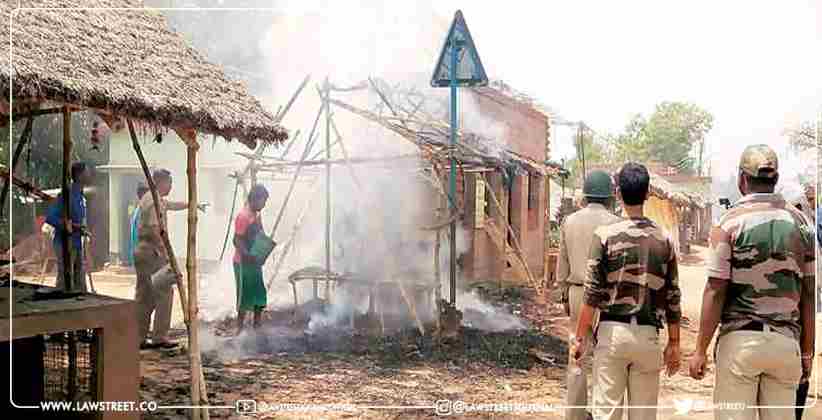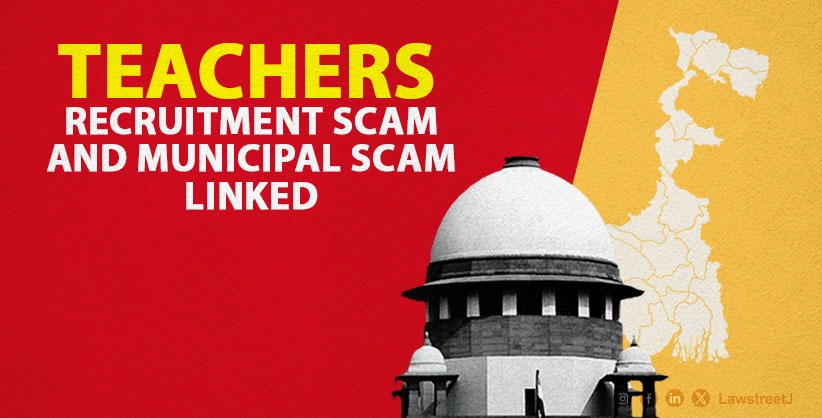Calcutta: The Calcutta High Court has recently directed the local committee of 24-Parganas (North), constituted under the Sexual Harassment of Women at Workplace (Prevention, Prohibition, and Redressal) Act, 2013, to reconsider a complaint by a professor of NUJS Kolkata, accusing the University's Vice-Chancellor of sexual harassment.
The court has also set aside an order of the local committee that had rejected a sexual harassment complaint filed by an Associate Professor against the Vice-Chancellor of the West Bengal National University of Juridical Sciences (NUJS) on the ground of limitation.
In the present case, the allegations made in the complaint clearly suggest that the circumstances of victimisation and detrimental treatment allegedly took place between April 2023 and December 2023, having a nexus with the alleged sexual harassment of the petitioner between September 2019 and April 2023. Therefore, if the complaint is read as a whole, it would lead to the conclusion that it was within the period of limitation in terms of Section 9(1) of the Act of 2013, the court said.
FACTS:
The case concerns a complaint filed by an Associate Professor at the West Bengal National University of Juridical Sciences (NUJS), Kolkata. On December 26, 2023, she lodged a complaint before the local committee constituted under the Sexual Harassment of Women at Workplace (Prevention, Prohibition and Redressal) Act, 2013, against the Vice-Chancellor of NUJS. In her complaint, Patnaik detailed a series of alleged incidents of sexual harassment by the Vice-Chancellor, spanning from September 2019 to April 2023.
On March 5, 2024, the local committee rejected her complaint, citing that the last alleged incident of sexual harassment was filed beyond the three-month limitation period prescribed under the Act. The committee also dismissed her application seeking condonation of delay, stating that the reasons provided were unsatisfactory.
Aggrieved by the committee's order, the petitioner approached the Calcutta High Court, challenging the decision.
ARGUMENTS:
The learned advocate appearing for the petitioner argued that the committee had failed to read the complaint in its proper perspective and misdirected itself in concluding that the complaint filed by the petitioner was barred by limitation. She further submitted that if the complaint filed by the petitioner is read as a whole, it will be apparent that the petitioner has alleged several incidents of implied or explicit threats of detrimental treatment in her employment.
On the other hand, the counsel appearing for the university supported the local committee's findings and further argued that nothing has been alleged in the complaint after April 2023 concerning or connected with any act or behaviour of sexual harassment. Therefore, he argued that the alleged incidents of victimisation having no nexus with sexual harassment cannot extend the period of limitation. He further submitted that the local committee has considered the complaint of the petitioner as well as the reply filed by respondent no.7 and came to a factual finding that no act of sexual harassment took place beyond April 2023.
Additionally, the counsel appearing for the Vice-Chancellor submitted that the petitioner herself applied for condonation of delay and that the committee was not satisfied with the explanation provided by the petitioner in her application. He further argued that since the petitioner could not sufficiently explain the delay in filing the complaint, the local committee rightly rejected the complaint. Therefore, they submitted that the findings of the committee should not be interfered with by the Court.
DECISION
The court, after hearing the parties, held that the order dated March 5, 2024, passed by the local committee cannot be sustained. It also held that the question of limitation was a mixed question of law and fact and, therefore, the issue of limitation could not have been decided by the local committee at the threshold stage without evidence. In deciding the issue of limitation, the committee should have accepted the allegations made in the complaint at face value.
Additionally, the court observed that the incidents of alleged victimisation and detrimental treatment faced by the petitioner between April 2023 and December 2023 had a clear nexus with the alleged sexual harassment by the Vice-Chancellor from September 2019 to April 2023. The High Court stated that in computing the period of limitation under Section 9(1) of the Sexual Harassment of Women at Workplace Act, 2013, the expression "sexual harassment" must be interpreted in the context of both Section 2(n) (defining sexual harassment) and Section 3(2) (listing circumstances amounting to sexual harassment).
In conclusion, the court held that the order passed by the local committee was not sustainable, and accordingly, it was set aside with a direction upon the local committee to conclude the proceedings initiated on the complaint filed by the petitioner on merit per the provisions of the Act of 2013.









![Calcutta High Court conducts late-evening hearing, orders release of lawyer arrested inside court [Read Order]](/secure/uploads/2023/12/lj_4146_Court_lawyers_arrest.jpg)
![Indian Courts this Week: Law Street Journal's Weekly Round-Up of SC & HCs [Jan 1 - Jan 6]](/secure/uploads/2024/01/lj_9050_WhatsApp_Image_2024-01-06_at_12.07.10_PM.jpeg)




